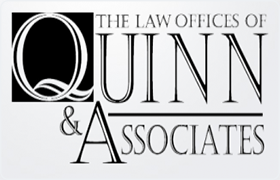Melvindale Criminal Lawyer, Michigan
Sponsored Law Firm
-
 x
x

Click For More Info:
-
Quinn and Associates
719 Griswold, Suite 820 Detroit, MI 48226 » view mapWayne County Criminal Law Win with Attorney Quinn!
We are dedicated to each case. We understand that every case is different and will always take the time to offer solutions that will put you in the winner’s circle.
800-661-1940  Christopher Quinn Esq.
Christopher Quinn Esq.Attorney At Law - MI
Detroit Mercy School of Law, J.D. - 2000
 About
AboutClick here to lean more about Mr. Quinn
 Contact UsEmail or Call 24/7
Contact UsEmail or Call 24/7Enter more text from site here
Jerard M. Scanland
✓ VERIFIEDMotor Vehicle, Divorce & Family Law, Criminal, Accident & Injury, Civil & Human Rights
Attorney Jerard Scanland focuses his practice on criminal law, family law, auto-accident, and landlord tenant cases. Having completed training for the... (more)
FREE CONSULTATION
CONTACTGregory J. Boulahanis
Criminal, DUI-DWI, Felony, Misdemeanor, Traffic
Status: In Good Standing Licensed: 41 Years
FREE CONSULTATION
CONTACTNickolas Darin
Divorce & Family Law, Misdemeanor, Felony, DUI-DWI
Status: In Good Standing Licensed: 12 Years
FREE CONSULTATION
CONTACTLaurence B. Doman
Farms, Child Support, Criminal, Contract
Status: In Good Standing Licensed: 44 Years
Robert J. Burger
Other, Estate Planning, Criminal, Bankruptcy & Debt
Status: In Good Standing Licensed: 37 Years
William L. Orlewicz
Federal Appellate Practice, Criminal, Business, Collection
Status: In Good Standing Licensed: 13 Years
Robert P. Coutts
Family Law, Criminal, Credit & Debt, Bankruptcy
Status: In Good Standing Licensed: 35 Years


 Christopher Quinn Esq.
Christopher Quinn Esq. About
About Contact UsEmail or Call 24/7
Contact UsEmail or Call 24/7

